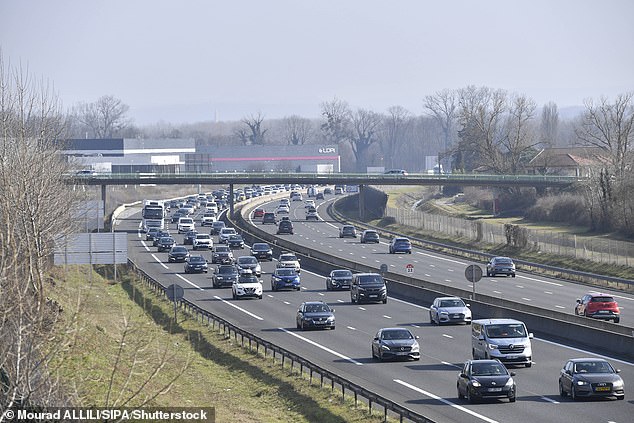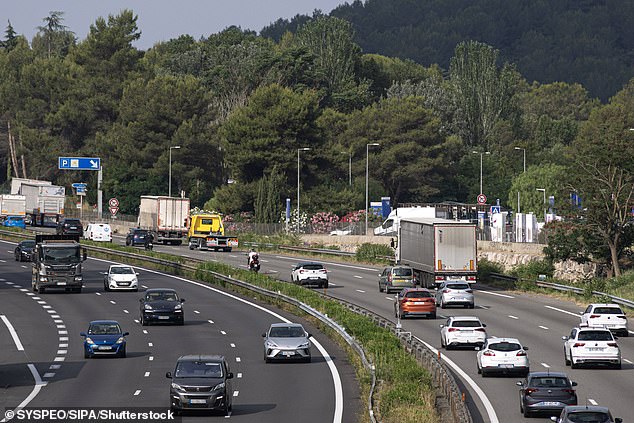France is probing a spate of collisions that are being blamed on phantom braking after a car crashed on a motorway when it went from doing 65mph to a complete standstill.
The phenomenon is said to be behind a growing road safety hazard after a string of terrifying incidents in which cars have slammed on their brakes without warning.
One high-profile case involves Joanna Peyrache, who was driving her Peugeot 208 near Lyon when her car suddenly decelerated from around 65mph to a complete stop ‘for no reason’.
The vehicle behind her crashed into the back of her car, causing major damage, though she escaped serious injury.
Neither her insurance company nor the other driver’s insurer would assess the car, leaving her to investigate the problem herself, according to local reports.
She said: The car behind collided with me, and my vehicle spun around 180 degrees under the shock. I don’t understand why the car suddenly braked.’
Her case has drawn over 300 similar reports from drivers, all describing abrupt braking in cars fitted with driver-assistance systems.
She is now considering a class-action lawsuit against manufacturers.
The technical fault affects vehicles equipped with Automatic Emergency Braking and other driver-assistance systems.

France is probing a spate of collisions that are being blamed on phantom braking after a car went from doing 65mph to a standstill, causing a crash on a motorway
Sensors designed to prevent accidents can malfunction, causing a car to stop suddenly while travelling at high speed.
No official recall has been issued in France, but reports suggest the problem may affect several makes and models.
In December 2023, a passenger lost their life after the car she was in was hit from behind.
The driver said the car had abruptly stopped by itself, but she was still convicted of manslaughter.
Another driver, Aurélie Tormos, recounted a phantom braking incident that ended in tragedy.
Her vehicle unexpectedly slowed on a motorway, killing her passenger. She was later convicted of involuntary manslaughter.
The French Ministry of Transport has opened an investigation into phantom braking, examining potential defects in automated braking systems.
Officials say the issue is complex, involving sensors, software algorithms, and environmental factors that can trigger false braking events.

A petition sent to France’s parliament on August 6 called for the ‘immediate launch of a parliamentary inquiry into the malfunctions of automatic braking systems
Globally, similar legal cases have been launched against manufacturers over sudden braking incidents, with experts warning that as more cars rely on automated safety technology, the risk of unexplained stops could rise if the problem is not properly addressed.
A petition sent to France’s parliament on August 6 called for the ‘immediate launch of a parliamentary inquiry into the malfunctions of automatic braking systems’.
The petition said: ‘Several car brands are affected. The common thread among all these incidents: the presence of a driver assistance system, particularly for braking.’
Campaigners also demanded, among others, a ‘legal review of criminal convictions related to these incidents, in order to consider their revision if it is proven that the system was at fault’. So far, the petition has received 452 signatures.
Christophe Theuil, vice-president of the French Federation of Automotive Expertise, told news outlet RFI: ‘If the sensors are poorly adjusted, it’s a bit like a nearsighted person driving without glasses.’
He added: ‘With a difference of just one degree, the car can brake for objects that, in reality, are not present in the lane.’












